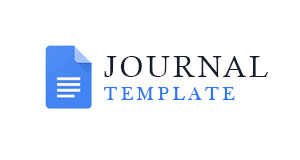Hajj Fund Investment Management in Indonesia
Abstract
Does the management of investment in Hajj funds in Indonesia impact the economy and welfare of the pilgrims in Indonesia? This study aims to see how the management of hajj funds in Indonesia. This research is motivated by the phenomenon of Hajj funds' investment management pattern that is applied in Indonesia. The location of this research is in Indonesia, where most of the population is Muslim. This study uses a qualitative approach. Data collection techniques used are through interviews and documentation. Interviews were conducted with the Hajj fund manager at the Indonesian Ministry of Religion, the Badan Pengelola Keuangan Haji (BPKH), and Bank Syariah Mandiri. Hajj funds managed by BPKH are placed on deposits and investments in securities. BPKH has now developed a hajj fund, and the investment returns positively impact the welfare of the hajj. The management of hajj funds through investment is the right way to benefit the congregation and for the welfare and benefit of the congregation during the pilgrimage. The return on investment is a government subsidy for pilgrims or covers the difference between the total cost of organizing the pilgrimage and the deposit paid by prospective pilgrims to the government. Pilgrims themselves can feel the subsidies provided through the management of hajj funds.
Keywords
Full Text:
PDFReferences
Al Arif, M. N. R., Arisman, A., & Harahap, D. (2021). Export, Political Stability, and Growth in Developing-8 Countries. Studies of Applied Economics, 39(2). https://doi.org/10.25115/eea.v39i2.3448
al-Zuhaili, W. (2011). Fiqh Islam wa Adillatuhu. Damaskus: Dar al-Fikr.
Arisman, A., Al Arif, M. N. R., & Harahap, D. (2021). Trade Agreement and Economic Growth: Evidence in D-8 Countries. Signifikan: Jurnal Ilmu Ekonomi, 10(2), 311–324. https://doi.org/10.15408/sjie.v10i2.21457
Bisri, C. (2003). Model Penelitian Fiqh. Bogor: Kencana.
Budiman, E. A. (Juni 2021). Indonesia Tidak Ikut Haji 2021, BPKH Pastikan Dana Jemaah Aman. Jakarta: Tempo.
Cahyani, U. E., Ardiansyah, M., & Sunaryati, S. (2020). Islamic Social Reporting and Financial Distress In List of Sharia Securities. IQTISHADIA, 13(2), 157. https://doi.org/10.21043/iqtishadia.v13i2.7756
Cahyani, U. E., Hanafi, S. M., & Masruri, S. (2022). The Nexus Between University Support and Entrepreneurial Mindset: Does Entrepreneurship Education Matter? Indonesian Journal of Business and Entrepreneurship. https://doi.org/10.17358/ijbe.8.3.351
Cahyani, U. E., Masruri, S., & Hanafi, S. M. (2022). DOES ENTREPRENEURSHIP EDUCATION MATTER FOR ISLAMIC HIGHER EDUCATION STUDENTS’ ENTREPRENEURIAL READINESS? Jurnal Ekonomi Bisnis dan Kewirausahaan, 11(2), 258. https://doi.org/10.26418/jebik.v11i2.55092
Cahyani, U. E., Sari, D. P., & Afandi, A. (2022). Determinant of Behavioral Intention to Use Digital Zakat Payment: The Moderating Role of Knowledge of Zakat. ZISWAF: JURNAL ZAKAT DAN WAKAF, 9(1), 1. https://doi.org/10.21043/ziswaf.v9i1.13330
Eduardus, T. (2008). Analisis Investasi dan Manajemen Portfolio. Yogyakarta: BPFEE.
Gitisudarmo, I. (2002). Manajemen Keuangan. Yogyakarta: BPFE UGM.
Harahap, D. (2017). Determinan Dana Pihak Ketiga Bank Syariah di Indonesia: Model Vector Autoregresive. IQTISHADIA, 10(1). http://dx.doi.org/10.21043/iqtishadia.v10i1.2432
Hariyanto, E. (2017). Mengenal Sukuk Negara. Yogyakarta: Gava Media.
Hasanudin, J. M. (2013). Fatwa Tentang Pembiayaan Pengurusan Dana Haji dan Status Dana Calon Haji Daftar Tunggu. Al-Iqtishad, 23-36.
Hasibuan, A. N. (2022). The Role of Company Characteristics in the Quality of Financial Reporting in Indonesian. Jurnal Ilmiah Peuradeun, 10(1), 1. https://doi.org/10.26811/peuradeun.v10i1.666
Jumali, E. (2016). Management of Hajj Funds in Indonesia. Journal of Legal, Ethical and Regulatory Issues, 21(3), 1-19.
Nasution, N. H. (2008). Investasi pada Pasar Modal Syariah. Jakarta: Kencana.
Nazri, R. (2013). Bank Haji Indonesia: Optimalisasi Pengelolaan Dana Haji untuk Kesejahteraan Jama’ah Haji Indoensia (Sebuah Gagasan). Khazanah, 6(1).
Possumah, B. (2017). Hajj Fund for infrastructure development: a Dilemma for Indonesian Muslims. Islamic Finance News, Special Report.
Rasyid, A. (2019). DINAMIKA PELAKSANAAN SERTIFIKASI HALAL PADA PRODUK MAKANAN DAN MINUMAN DI KOTA MEDAN, SIBOLGA DAN PADANGSIDIMPUAN. MIQOT: Jurnal Ilmu-ilmu Keislaman, 43(2), 167. https://doi.org/10.30821/miqot.v43i2.640
RICO NUR ILHAM, IRADA SINTA, MANGASI SINURAT, ABDUL NASSER HASIBUAN, & LAKHARIS INUZULA. (2022). THE EFFECT OF MACRO ECONOMIC FACTOR ON STOCK RETURN OF STATE-OWNED ENTERPRISES (BUMN) LISTED ON THE INDONESIA STOCK EXCHANGE. https://doi.org/10.5281/ZENODO.6938564
Rochimi, A. (2010). Segala Hal tentang Haji dan Umrah. Jakarta: Gelora Aksara Pratama.
Rongiyati, S. (2017). Perspektif Yuridis Pengelolaan Dana Haji untuk Investasi Infrastruktur. Jakarta: Info Hukum Singkat.
Rukiah, R., Nuruddin, A., & Siregar, S. (2019). Islamic Human Development Index di Indonesia (Suatu Pendekatan Maqhasid Syariah). Jurnal Istinbath, 18(2). https://www.istinbath.or.id/index.php/ijhi/article/view/171
Siswantoro, D., Handika, R. & Mita, A.F. (2020). The requirements of cryptocurrency for money, an Islamic view. Heliyon, 1-9.
Sunaryo. (2019, Agustus 30). Hajj Fund Investment Management. (R. A. Hulwati, Interviewer)
Zubaedi. (2016). Analisis Problematika Manajemen Pelaksanaan Haji Indonesia (Restrukturisasi Model Pengelolaan Haji Menuju Manajemen Haji yang Modern. Manhaj, 4(3), 189-200.
DOI: https://doi.org/10.24952/tijaroh.v8i1.5189
Refbacks
- There are currently no refbacks.
Copyright (c) 2022 At-tijaroh: Jurnal Ilmu Manajemen dan Bisnis Islam

This work is licensed under a Creative Commons Attribution-ShareAlike 4.0 International License.















